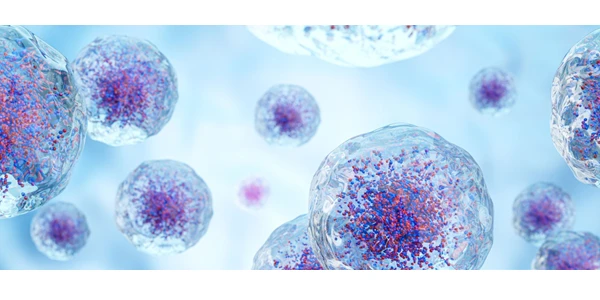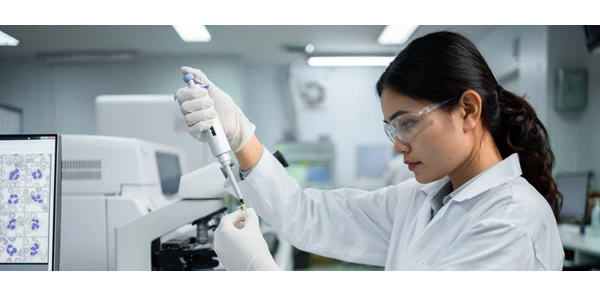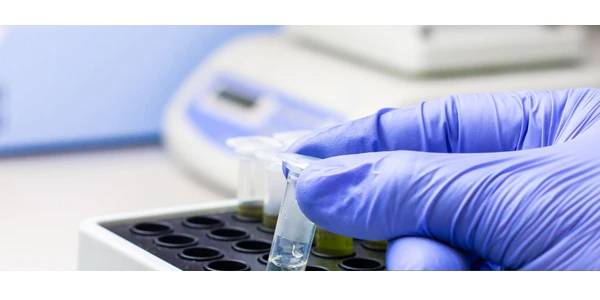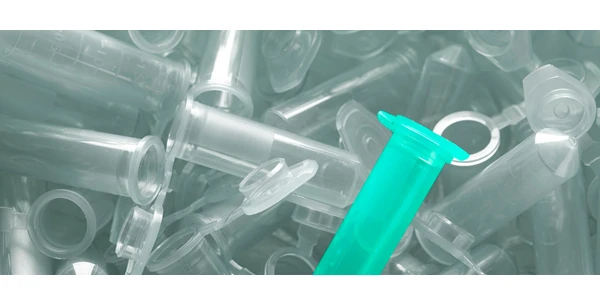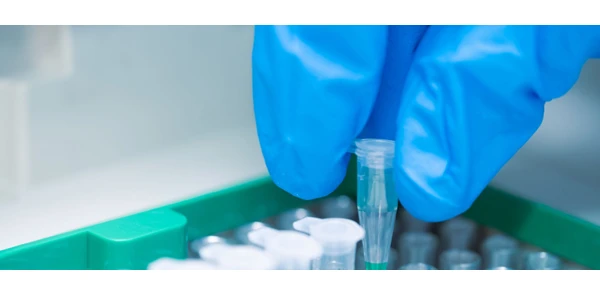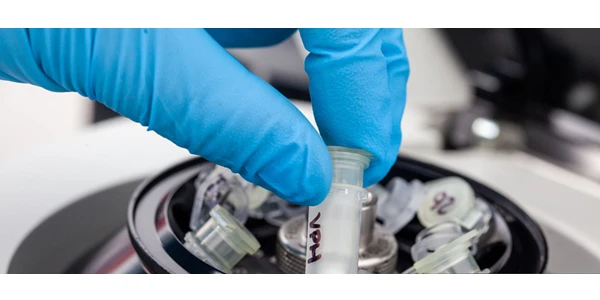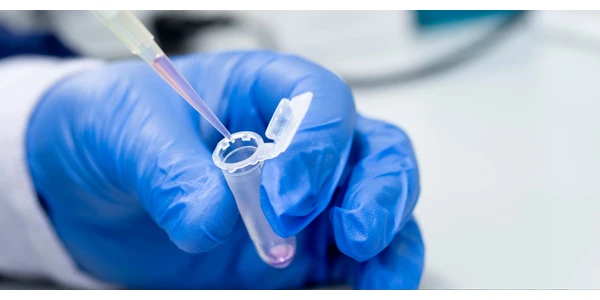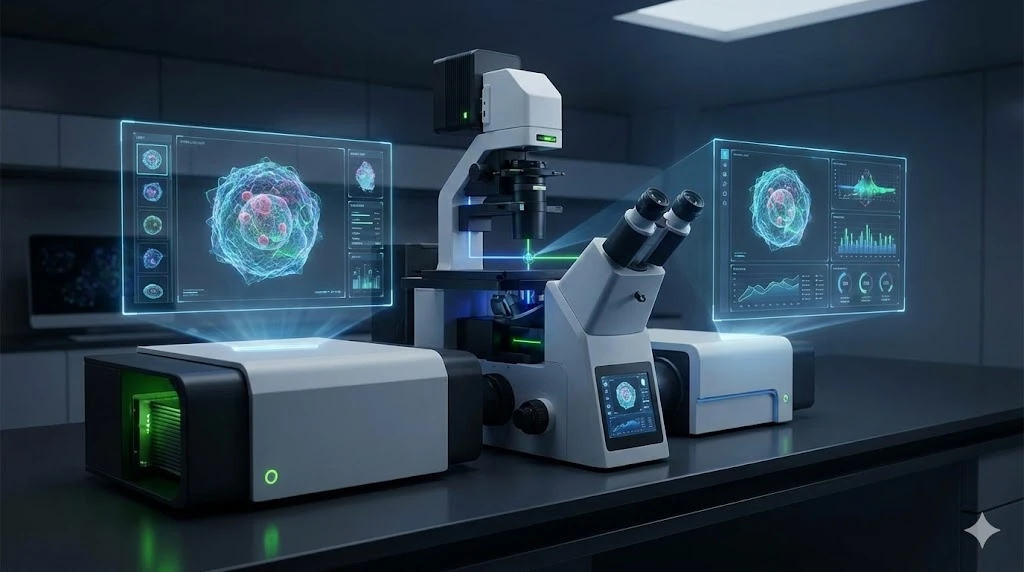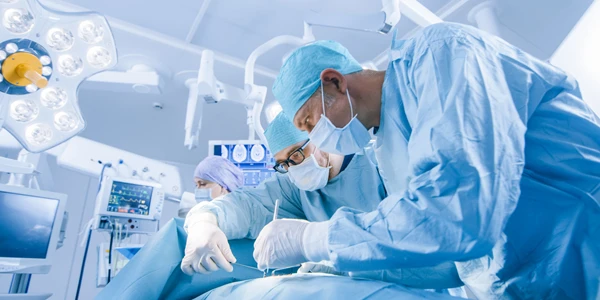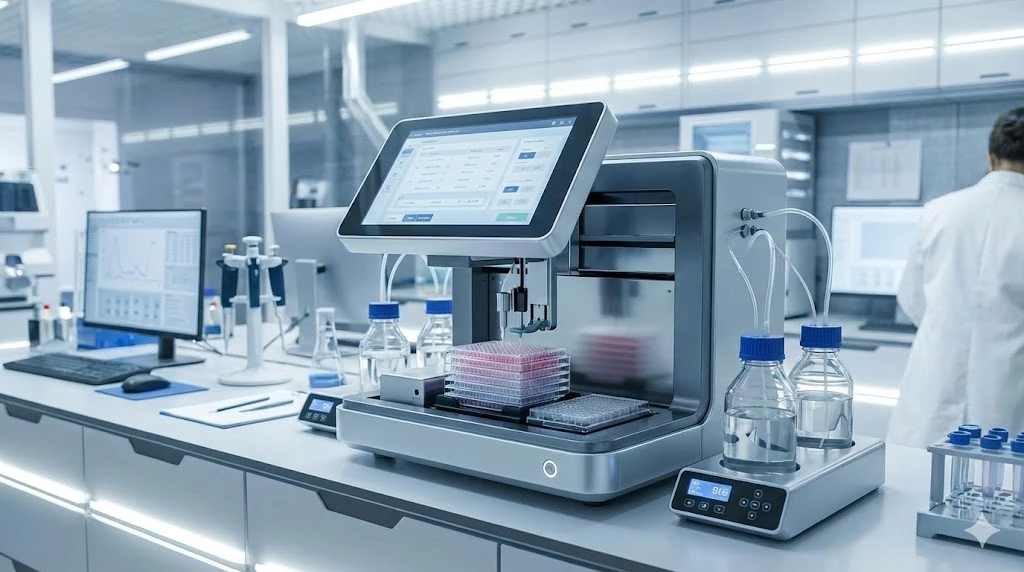The New Echo® MS+ system from SCIEX Couples Ultra-Fast Sampling Analysis with the High-Resolution Mass Spectrometry Capabilities of the SCIEX ZenoTOF 7600 system
The Echo® MS+ system opens the door to high-throughput analysis of intact proteins, biomolecules, and challenging screening applications
SCIEX made a bold introduction at the Society for Laboratory Automation and Screening (SLAS) conference this year. An evolution of the Echo MS system, the Echo MS+ system, which includes various hardware and software refinements, couples high-throughput acoustic ejection with mass spectrometry (MS) analysis on either the ZenoTOF 7600 system or Triple Quad 6500+ system. Previously limited to the Triple Quad 6500+ system, this development expands the capabilities of the Echo MS+ system platform beyond small molecule screening and into the realm of high-resolution analysis of intact proteins, biomolecules, and challenging drug discovery applications.
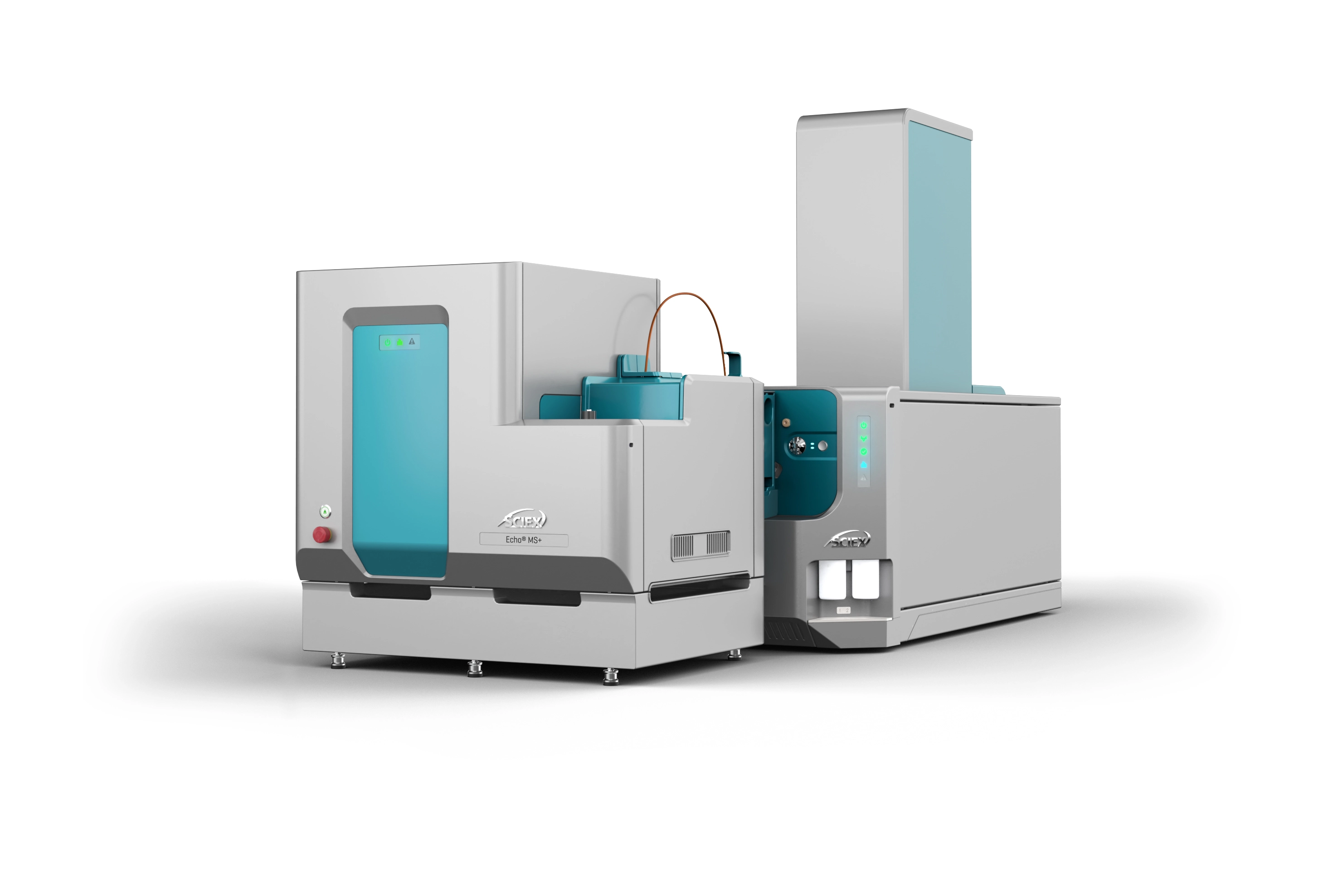 There have
been multiple leaps forward in Echo system innovation since its inception. SCIEX
brought the core technology, Acoustic Droplet Ejection (ADE), to the mass
spectrometry world with the advent of the Echo MS system in 2020. ADE harnesses
sound waves to eject reproducible nanoliter-sized droplets of sample from
microtiter plates. Samples are subsequently guided into the Open Port Interface
(OPI) where they are diluted in a carrier solvent and transferred to the mass
spectrometer source. From this point, the diluted samples are ionized using
conventional electrospray ionization, making them ready for detection.
There have
been multiple leaps forward in Echo system innovation since its inception. SCIEX
brought the core technology, Acoustic Droplet Ejection (ADE), to the mass
spectrometry world with the advent of the Echo MS system in 2020. ADE harnesses
sound waves to eject reproducible nanoliter-sized droplets of sample from
microtiter plates. Samples are subsequently guided into the Open Port Interface
(OPI) where they are diluted in a carrier solvent and transferred to the mass
spectrometer source. From this point, the diluted samples are ionized using
conventional electrospray ionization, making them ready for detection.
On the original Echo MS system, coupling ADE with the SCIEX Triple Quad 6500+ system enabled high-throughput sample analysis in small molecule screening and discovery applications. A key attribute of the system included direct and incredibly fast sampling rates of up to one sample per second, eliminating the need for time-consuming LC separations.
Q&A
This year’s development brings the collaboration of ADE and MS capabilities to a whole new level. LabX caught up with Susan Darling, Senior Director of Product Management at SCIEX, to learn more.
Damon Anderson, LabX:
SLAS 2023 brought developments on the Echo MS system, including several technology-enabling partnerships. At SLAS 2024, the Echo MS+ system was announced. Can you tell us more about the newly launched innovation?
Susan Darling, SCIEX:
The new Echo MS+ system combines acoustic ejection technology with mass spectrometry. The first-generation system only supported our Triple Quad 6500+ system but we have expanded capabilities to include a high-resolution accurate mass spectrometer, the ZenoTOF 7600 system alongside the Triple Quad 6500+ system. This was a request from our customers due to the desire to expand the workflows and capabilities of the technology.
With the addition of the ZenoTOF 7600 system, the number of potential applications has significantly expanded. This has a direct impact for large molecule workflows where high-resolution mass spectrometry plays an important role. It also extends to medicinal chemistry applications where elemental composition or isotopic distribution information is key for confident compound identification. The Echo MS+ system is compatible with front-end automation and a variety of data processing solutions so our customers can develop an end-to-end solution to meet their needs.
SCIEX has also created an Echo MS Center of Excellence to demonstrate the technology, develop new workflows, and support customers with method and workflow development. During product development, we utilized the Center of Excellence to gather feedback on the entire workflow to provide an HTS tool that would meet customer needs.
LabX:
Regarding this new compatibility with the SCIEX ZenoTOF 7600 system, can you expand upon the avenues of research, screening, and drug discovery that are now within reach?
SD:
The Echo MS+ system with ZenoTOF 7600 can tackle larger, more complex molecules. Proteins, covalent binders, soluble receptors, and other biopharma molecules can be analyzed using the new platform. Beyond these, there is the potential to tackle oligonucleotides, drug-antibody conjugates, and metabolic compounds for quality assessment and monitoring.
LabX:
It is clear there are advantages of the Echo MS platform not only for discovery and small molecule screening but also for high-resolution quantitative screening and quality assessment in drug development. In your view, what are the biggest impact areas for the Echo MS technology in each of these areas -- speed, precision, quantitative power? Are there limits to the types of applications that can be tackled? If so, what needs to be done to enable Echo MS into these new territories?
SD:
The contactless sample ejection combined with a small sample volume (nL range) and the speed of analysis are clear advantages for the Echo MS+ system. With the option to use high-resolution mass spectrometry, the system can now be applied to more complex samples and applications.
These new workflows may require method development and this is where the Echo MS Center of Excellence comes in. We develop workflows within the center and test them on our instrumentation. We then work with customers to implement methods and workflows in their labs.
To broaden the perspective, a major strength of the Echo MS+ system is not simply speed and high throughput. It is the ability to screen and rapidly identify yes or no answers with confidence. It is vastly accelerating the course from sample library to lead identification. Faster results for quality control assessment of lead compounds or compound libraries.
We’ve partnered with technology solutions at the front and back end of the Echo MS+ system. Bio-Mek liquid handling robots can easily perform sample plate transfers. Partnerships with data management and automation solutions are aimed at making the system compatible with several dataflows, according to the goals of the lab. Biosero and Genedata are partners providing solutions by developing software to facilitate data transfer and lab automation.
The SLAS launch is focused on HTS workflows but we are continuing to develop and further expand the technology. Areas of interest include HT-ADME, where the sensitivity of the platform may be robust enough to track drug metabolites and off-target effects using TOF-MS. Such capabilities may help in assessing drug activity at an early stage in the development process. The Echo MS+ system with ZenoTOF 7600 may also excel in oligonucleotide analysis and purity assessment as well. Many new applications may open with the expansion of the Echo MS technology.
Our goal at SCIEX is to work with customers to understand challenges and provide analytical solutions. We aim to leverage our resources to help customers solve problems. The objective is not simply to increase speed or move a bottleneck in sample processing. We aim to solve problems and work towards actionable answers.
For more information on this development:
